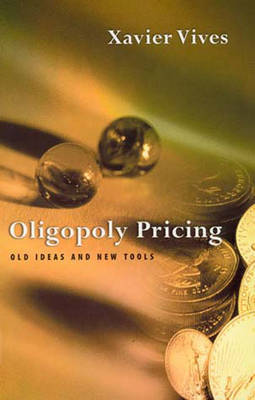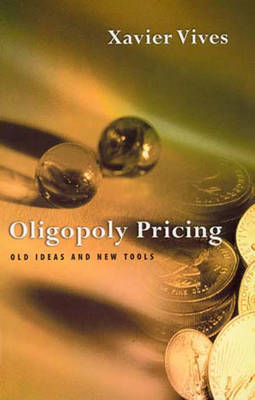
- Afhalen na 1 uur in een winkel met voorraad
- Gratis thuislevering in België vanaf € 30
- Ruim aanbod met 7 miljoen producten
- Afhalen na 1 uur in een winkel met voorraad
- Gratis thuislevering in België vanaf € 30
- Ruim aanbod met 7 miljoen producten
Zoeken
€ 66,45
+ 132 punten
Omschrijving
The "oligopoly problem"--the question of how prices are formed when the market contains only a few competitors--is one of the more persistent problems in the history of economic thought. In this book Xavier Vives applies a modern game-theoretic approach to develop a theory of oligopoly pricing. Vives begins by relating classic contributions to the field--including those of Cournot, Bertrand, Edgeworth, Chamberlin, and Robinson--to modern game theory. In his discussion of basic game-theoretic tools and equilibrium, he pays particular attention to recent developments in the theory of supermodular games. The middle section of the book, an in-depth treatment of classic static models, provides specialized existence results, characterizations of equilibria, extensions to large markets, and an analysis of comparative statics with a view toward applied work. The final chapters examine commitment issues, entry, information transmission, and collusion using a variety of tools: two-stage games, the modeling of competition under asymmetric information and mechanism design theory, and the theory of repeated and dynamic games, including Markov perfect equilibrium and differential games.
Specificaties
Betrokkenen
- Auteur(s):
- Uitgeverij:
Inhoud
- Aantal bladzijden:
- 442
- Taal:
- Engels
- Reeks:
Eigenschappen
- Productcode (EAN):
- 9780262720403
- Verschijningsdatum:
- 27/07/2001
- Uitvoering:
- Paperback
- Formaat:
- Trade paperback (VS)
- Afmetingen:
- 149 mm x 228 mm
- Gewicht:
- 585 g

Alleen bij Standaard Boekhandel
+ 132 punten op je klantenkaart van Standaard Boekhandel
Beoordelingen
We publiceren alleen reviews die voldoen aan de voorwaarden voor reviews. Bekijk onze voorwaarden voor reviews.











